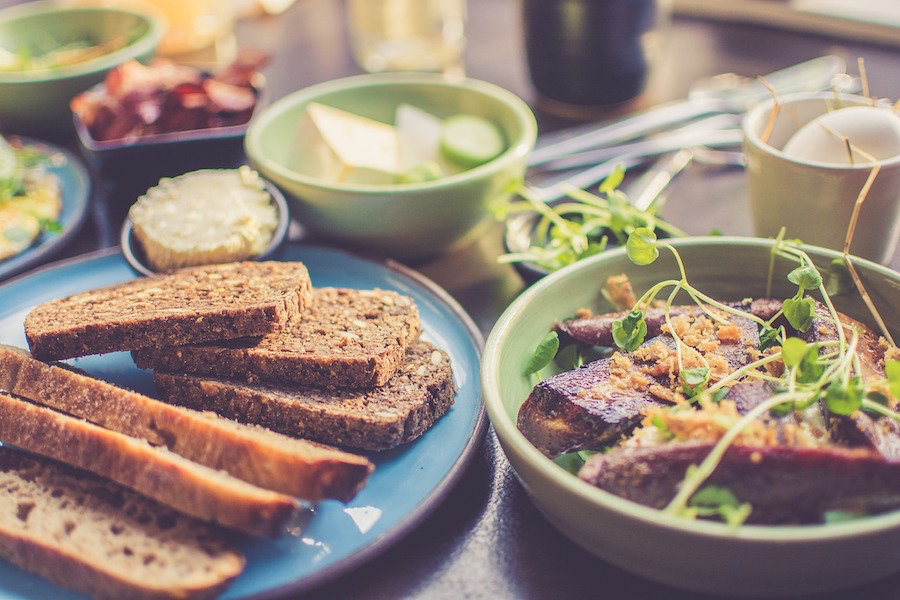Paula Wolfert’s Seven Keys to Retrieving Food Memories

Connecting through food with someone suffering from dementia has its challenges as well as rewards. Here are seven tips based on what author Emily Kaiser Thelin learned while cooking with Paula Wolfert for their new book, “Unforgettable: The Bold Flavors of Paula Wolfert’s Renegade Life.”
1. Be open to small successes and potential failure. You’re embarking on an experiment, and some experiments don’t work. The experience may be frustrating, disappointing, demoralizing—or richly stimulating. No matter what happens, you’ll share a meal. You get an A for effort.
2. Although this may seem self-evident, if you want to cook a dish together to see what memories the food might evoke, select a recipe that has meaning, such as specialty of the person or a family heirloom. If there isn’t a specific recorded recipe and you’re hoping to retrieve a recipe from the person’s memory, look over several published equivalents. If it’s a dish with a foreign name, look for dishes from other countries that might be similar. Even if they do not share the same name, they may help shed more light.
3. Cooking and eating aren’t the only ways a dish can evoke memories. Before shopping or cooking, sit down together in person or over the phone to read through the written recipe—both the ingredients and the instructions. Do any of the words bring up memories? This is an ideal time to ask general questions about the dish, as well, such as what did the person like about it, how did he or she first discover it, or does he or she recall making any ingredient substitutions.
4. Shopping for ingredients can also spark recollections, even if you’re using FaceTime for part of your trip to the store. Using a video conference on one grocery trip, I was able to show Paula that my Berkeley grocery store carried long, curled, pale green feggous (Armenian cucumbers), which brought back some of her memories about shopping in the markets of Tangier.
5. When prepping and cooking, I found it almost more helpful to watch what Paula did than listen to what she said. Her hands sometimes knew what to do when her mind did not. Are there tricks that are used in how to peel garlic, flip polenta cakes, or stir batter? Paula would often reveal techniques while insisting she couldn’t remember a thing about a dish.
6. As the dish nears completion, ask the person to help guide you as you assess its doneness. For example, if it’s roast chicken, has the skin achieved the right color? If it’s cooked vegetables, are they the right texture? Sometimes Paula would despair, “I have no idea. I can’t remember.” But other times the questions restored her confidence, reminding her of her deep cooking expertise—and taught me new ways to judge a dish.
7. When the dish is ready, if it’s possible (especially if your cook is as opinionated as Paula), take the first bite to form your own opinion and give yourself an idea of what to ask. Then let your cook take one bite (not several) to focus on the flavor. With Paula, that first bite was often the most revealing. If no recollections come up, feign indifference to help lower the stakes, then encourage another bite or two. If still nothing comes up, sit down and enjoy the meal and talk about something else he or she enjoys, rather than food memories.
You can learn more about Paula’s incredible life in the new book “Unforgettable: The Bold Flavors of Paula Wolfert’s Renegade Life.”
READ MORE STORIES THAT MOVE HUMANITY FORWARD
READ MORE STORIES THAT MOVE HUMANITY FORWARD
SIGN UP FOR MARIA’S SUNDAY PAPER


